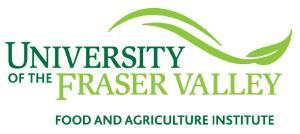The CBH Nexus and Integrated Food Systems Planning
Project Description
The COVID-19 pandemic has highlighted vulnerabilities and gaps in community food systems, presenting planners and decision-makers with the significant challenge of (and opportunities for) developing communities in ways that increase local food resilience and sustainability.
The Climate-Biodiversity-Health (CBH) Nexus research project aims to advance integrated community planning by developing an experimental framework consisting of three strategic areas critical to sustainable development: 1) climate action, 2) biodiversity conservation, and 3) community health, the climate-biodiversity-health (CBH) nexus. Applying the CBH nexus framework to different community planning areas could elucidate how strategies, policies, and actions align or conflict with imperatives for the sustainable development of local food systems.
This community-based participatory research approach will engage stakeholders and local governments in British Columbia to build an understanding of how communities can better engage in integrated food systems and sustainable community development planning. The research will contribute practical outcomes by developing publicly available models for practitioners to use for their planning needs, as well as a report presenting findings and recommendations for integrated food systems planning and policy.
-740x342.jpeg)




